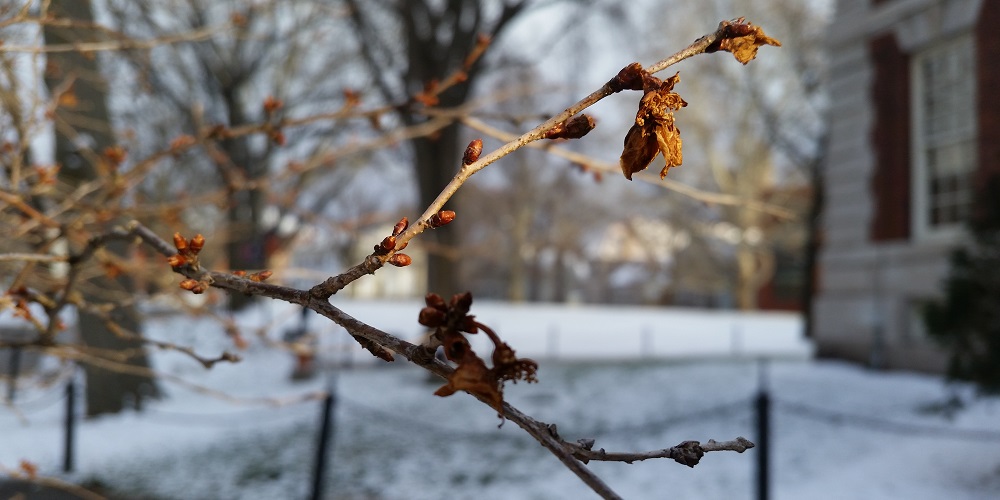NORTHAMPTON — About a year ago, I saw three deer running across the Connecticut River. They weren’t walking on water: the river had frozen, thick enough to support their lightly tripping hooves. Last winter, Bostonians got so much snow they called it the Snowpocalypse.
This December, I saw a deer again, but it stood on the Connecticut’s bank, its head dipped, drinking. Three kayakers paddled slowly towards it. I stood with my bicycle on the bike trail, clad only in a sweater. Outside my office, that morning, I’d seen a cherry tree putting out hesitant, puzzled white flowers – flowers that wilted and turned a wrinkled brown with the New Year’s cold snap that finally plunged us into the winter weather we’d been expecting.
We live in New England. Things change here. “If you don’t like the weather in New England,” Mark Twain wrote, “just wait a few minutes.”
I tell my students at Smith College that I’m not surprised that many people struggle to believe in climate change. But everyone knows flowers in late December are, to put it mildly, not normal…
Read more at the Daily Hampshire Gazette
I’ve also got an article out this week in Smith College’s research magazine on research into brain cancer, autism, depression, sleep disorders and other ailments using the versatile zebrafish:
Zebrafish: The Rising Superstars of Research – Insight Magazine
Photo above: A cherry blossom at Smith College withers during the January cold snap after flowering during December’s weird warmth.
